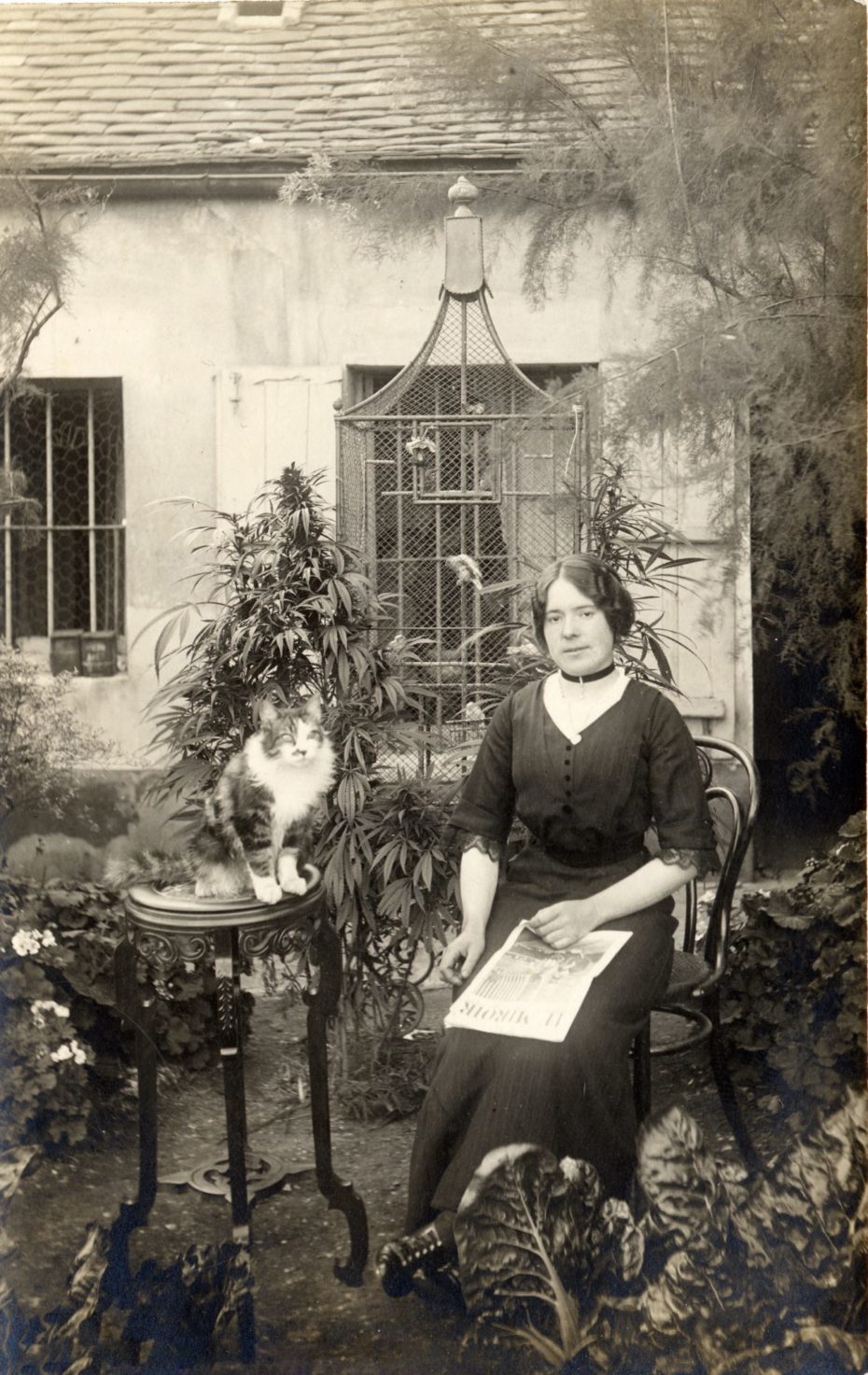
The smell, once oppressive and annoying, was now soothing. The leaves always became more pungent baking in the warm sun and because of that, Delphine would often avoid the garden in midday. Her brother Guillaume started growing the cannabis plants for the pain and injuries he brought back from the war. At first, smoking it in the garden helped him sleep, but soon it didn’t. Despite the impression that his physical injuries had healed, a deeper internal hollowness emerged. Light insomnia snowballed into anxious worrying, so he moved on to opium followed by morphine that erased him bit by bit until there was little left. When sleep was elusive, he was like a ghost, organizing things in the house, wine corks, spoons, flocons de savon. Sometimes, upon waking, Delphine would find groups of similar objects laid out in an ominous way that only made sense to her sibling. Forks fanned out like flowers on the living room rug, sharp aiguilles à coudre were tightly tucked between piano keys. A series of family pictures were attached with clothespins facing into the bird cage bars, the canaries jumping from perch to perch not sure where to look. Even though she dreaded it, part of her looked forward to finding these strange displays because it meant that he still existed behind blank eyes that looked right through and past her at the breakfast table. After perilously stacking and collating Delphine’s Maîtres de l’Affiches with her best Limoges dessert plates, he put on his uniform and left, leaving the door wide open almost encouraging her to follow. It was a predictable exit and she often thought of the sweet smoke that promised him at least a few hours of sleep, thus prolonging his sad eventual disappearance.
Four months later, Delphine was taking in the fragrance of the cannabis on this sunny afternoon but today it is also a respite from another smell, attached to the soldier. She discovered the German here in this garden in the middle of the night, his uniform dirty and smelling of something fragrant and rotten like garlic or apples. The frayed ends of his sleeves hid his hands but she had seen the shiny blistered burns. She had read about the gas the Germans had unleashed and her terror at finding him receded when she saw him cradling the cat. He was gently stroking it with the ends of his sleeve as using his hands would be too painful. For the first few days he refused food, until his hunger overwhelmed him and he politely sat at the table with le chat on his lap, gratefully eating his omelette. He would not allow her to dress his wounds and it was not unexpected that he would remain at the house and inhabit Guillaume’s bedroom. At first, Delphine wanted to remove her brother’s favorite possessions, his philosophy books (Bergsen’s L’Évolution Créatrice still held an embossed bookmark and scribbled notes), his black tailcoat and satirical drawings, but when she saw the German gingerly walk around things she knew that he would treat the room as a guest and not a permanent occupant.
As much as the soldier fit into her life in a surprisingly unobtrusive way, le chat has been a more hostile guest. It’s as if he came to specifically disrupt all of the things she wanted to carefully preserve about her brother. He was a fluffy thing with an ugly face and deranged, human eyes. Most of his attention, to Delphine’s dismay, was focused on her canaries whose anxiety level had risen greatly since his arrival. If Delphine turned for a second to prune her plants, pour her tea or turn the page of Le Miroir, the cat would leap at the cage, jump hold, causing it to sway and threaten to topple. She would have removed the vile creature ages ago but her threats of retaliation are the only thing that alarmed the soldier and frightened her about him. So now, as she sits in her garden in the warm afternoon, he perches on a table and stares, quietly challenging her to confront an unsettling chaos not felt since her brother’s departure.

